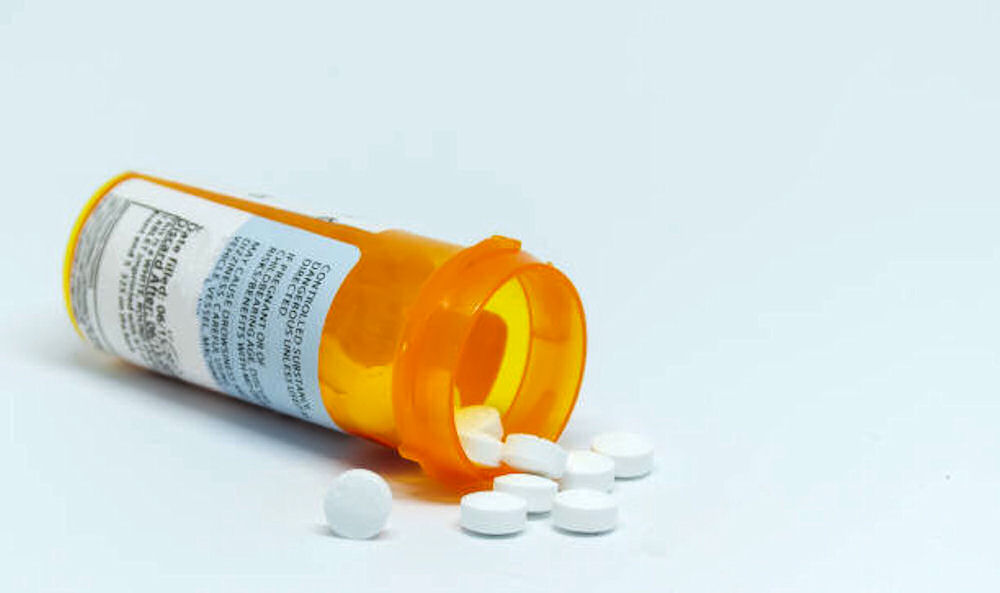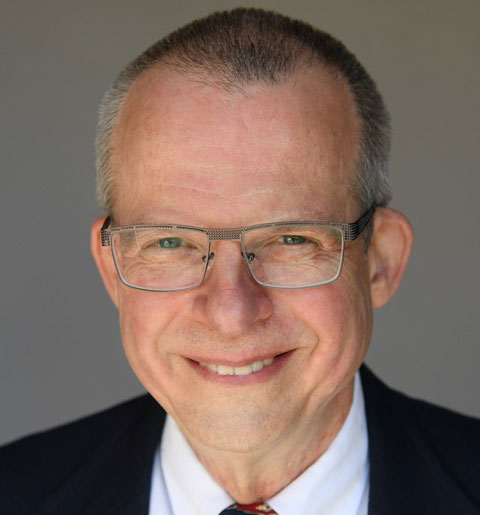Prescription Drug Rehab in Washington
Prescription drug addiction has become a significant public health concern in recent years. While many people may use and abuse prescription drugs recreationally, there is also a growing number of people who are finding themselves becoming dependent or addicted to these substances despite taking them for legitimate medical reasons and taking them only as directed.
If you or a loved one is suffering from prescription drug abuse or addiction, it is important to seek help from one of the many prescription drug rehab centers in Washington, including us at Bayview Recovery. Our substance abuse treatment program can help you make a major change in your life today.

Do You Have a Prescription Drug Addiction?
Perhaps one of the most challenging questions to ask yourself is this: do you have a prescription drug addiction? Addiction occurs when you realize that continuing to take these drugs can lead to adverse conditions and even risky behavior, and yet you continue to do so. It also includes dependence, a condition in which you find it very hard to stop using substances.
Dependence and addiction occur because the brain has become so used to a substance being in your system that it has convinced itself that it can’t function properly if the said substance is not in your system.
While it may be difficult to spot if someone is suffering from a prescription drug addiction especially if they are being medically prescribed the drug, there are a few things you can keep an eye out for that may indicate a larger issue.
These include:
- Taking prescription medications without a prescription
- Running out of prescription medications earlier than the directions say to
- Doctor shopping or talking to several doctors to get more than one prescription
- Stealing medications from others
- Experiencing intense pain, agitation, illness, and cravings when not taking prescription drugs
Commonly Abused Prescription Drugs
While prescription drugs can be abused for recreational purposes, often they are the result of a person obtaining said prescription drug from a medical professional. As time goes on they may start to build a tolerance and begin taking more of the drug than medically directed. This can lead to prescription drug abuse which, when not immediately addressed can lead to drug addiction.
Knowing the signs and symptoms of prescription drug abuse can help get you or your loved one the help that they need before the issue continues to get worse.
Below are some commonly abused prescription drugs as well as the signs and symptoms associated with the abuse of each prescription drug:
Opioids are among the most commonly abused prescription drugs. While they do have important medical uses, opioid addiction is not uncommon. Some common examples of opioids include OxyContin (oxycodone), Vicodin (hydrocodone), Percocet (oxycodone/acetaminophen), fentanyl, and codeine. In many cases, an opioid addiction rehab program can be the only solution for those with moderate to severe opioid addiction.
Signs and symptoms of opioid abuse include:
- Euphoria
- Confusion
- Nausea
- Drowsiness
- Poor coordination
- Slowed breathing rate
- Increased tolerance
Stimulant medications, such as Adderall (amphetamine/dextroamphetamine) and Ritalin (methylphenidate), are commonly prescribed for attention deficit hyperactivity disorder (ADHD) and narcolepsy. They can produce a euphoric effect when misused, leading to a potential risk of addiction, especially among individuals who take higher doses than prescribed or consume the medication in ways other than intended. Stimulant addiction treatment consists of a calculated detox and continued care.
Some other signs and symptoms of stimulant abuse include:
- Anxiety
- Paranoia
- Insomnia
- Elevated blood pressure
- Irregular heartbeat
- Agitation
- Changes in appetite
- Increased alertness
Benzos or benzodiazepines are central nervous system depressants often prescribed to treat anxiety, panic disorders, and insomnia. Medications like Xanax (alprazolam), Valium (diazepam), and Ativan (lorazepam) can be highly addictive when used for extended periods. Dependence on benzodiazepines can result in withdrawal symptoms and should be carefully managed during the benzo addiction treatment process.
Signs and symptoms of benzo abuse include:
- Dizziness
- Drowsiness
- Confusion
- Slurred speech
- Poor coordination
- Memory issues
- Slowed breathing
- Unbalanced walking
If you or a loved one is experiencing any of the common signs or symptoms listed above, it is important to seek treatment right away before the issues get worse.
Treatment Options for Prescription Drug Addiction
When not addressed properly, prescription drug abuse can lead to prescription drug addiction. It’s important to remember that prescription drug addiction is not only treatable but there are a number of different treatment options available.

The first step in the overall treatment process is medical detox. Detoxing is done in order to rid the body of any and all harmful substances that are in it so that the healing process can begin.
During the detox process, intense and uncomfortable withdrawal symptoms are not uncommon. That’s why it is crucial that detoxing be done under the care and supervision of trained medical professionals at either a local medical facility, a dedicated detox center, or a treatment center that also offers medical detox services. Oftentimes, medications can be administered to help treat or alleviate some of the more uncomfortable and dangerous withdrawal symptoms.
Should you choose to self-detox it is important to consult a medical professional before beginning that process.
Once you have successfully completed detox, there are a number of different rehab programs that you can enter into. One of the more popular options among treatment professionals is inpatient rehab.
As the name implies, with inpatient rehab you live at the facility for the duration of your treatment. Inpatient rehab not only provides the structure and support to help with your recovery efforts, but it eliminates all temptations that come from the outside world. This allows you to focus 100% of your time and energy on getting sober.
Inpatient rehab often involves a combination of various therapies, counseling sessions, individual and group activities, and access to around-the-clock medical care and monitoring.
For those that don’t require inpatient treatment, or for those that are either unwilling or unable to put their daily lives on hold and enter into an inpatient rehab program, another option is outpatient treatment.
With our Washington outpatient rehab program, you go to the facility during the day for your various therapy and counseling sessions and then return home to your daily life. For those choosing to go the outpatient route, it is important that you have a safe, supportive, and sober home to return to every day.
Medication-assisted treatment combines behavioral therapies with medications to treat prescription drug addiction effectively.
Examples of medications that are administered as part of an MAT program include:
- Methadone
- Naltrexone
- Buprenorphine
- Acamprosate
- Disulfiram
Support groups, such as Narcotics Anonymous (NA) and SMART Recovery, offer a sense of community and understanding to individuals struggling with prescription drug addiction. These groups provide a platform to share experiences, offer mutual support, and learn coping strategies from others who have overcome similar challenges.
Support groups are often one component of both inpatient and outpatient treatment. However, many people continue to go to support group meetings after they have completed treatment as part of their life-long recovery journey.
Prescription Drug Rehab Therapies
Bayview Recovery offers a wide range of therapies for a variety of different substance use disorders. Some of the therapies we may recommend for you include:
- Individual therapy program
- Group therapy program
- Family therapy program
- Trauma therapy program
- Psychotherapy program therapies
Within our program, we also provide a number of evidence-based behavioral therapies such as:
- Cognitive behavioral therapy (CBT) – CBT helps individuals identify and change negative thought patterns and behaviors related to drug use
- Contingency management – Provides positive reinforcement for drug-free behaviors, motivating individuals to remain abstinent
- Motivational interviewing – helps individuals strengthen their commitment to recovery.
We also offer a number of holistic treatment and experiential therapy options such as art therapy.

How Can a Prescription Drug Rehab Help You?
You may be taking prescription medication for a medical condition, such as one for chronic pain. Alternatively, you may be taking benzos or other drugs for mental health, seizures, or ADHD. If you are looking to stop taking these medications, it is important to do so as safely as possible. Our prescription drug rehab program can help you to safely stop taking medications that you’ve developed an addiction to and should not continue.
Based on your needs and the severity of your condition, we will create a treatment plan perfect for you and your situation. Once you have completed treatment, we will continue to help you on your road to recovery through our aftercare and sober living programs.
Prescription Drug Rehab Centers Such as Bayview Recovery Can Help with Your Prescription Drug Addiction
Prescription drug addiction can have severe consequences on an individual’s physical and mental health. Understanding the most commonly abused prescription drugs and the available treatment options is crucial in combating this growing problem.
At Bayview Recovery, we understand the importance of getting the help you need when it comes to prescription drug abuse or addiction. If you or a loved one is struggling with prescription drug abuse or addiction, contact us today to learn more about our various treatment options as well as how we can help them or you get on the road to recovery.

“The staff at the center has been remarkable in their care for our loved one. Tuni was with us the whole way as we tried to get this person into treatment. They continue to assist us as the process continues. Great work!”
Ray O
“I have been trying to get sober the past 3 years and I have been to treatment 5 times. Bayview Recovery was my 6th time. They helped me get to 142 days sober! I was a handful hot mess when I got there but the team never gave up on me. They work with families and they truly care about them too. Bayview house’s are clean and comfortable and the staff is amazing. They plan for fun events weekly and they want you to have fun. If your looking for something different call them it will save your LIFE!”
Cindy J
“Bayview is dedicated to providing clients the healthiest environment to develop a solid foundation in their recovery. The therapists and medical team are devoted to ensure clients have the best individualized care. I highly recommend Bayview for anyone seeking a highly professional treatment program. The care and compassion given to clients is remarkable.”
Robin M
“This is a fantastic facility with outstanding staff. If you or a loved one is struggling this is a great program to start the journey of recovery and get life long skills and relationships to begin a new life!”
Garrett T
“Just picked up our daughter after 90 days at Bayview Recovery. Loved the staff and facility, do not know what the future holds ???????? but while at Bayview , always felt informed. Highly recommend, incredibly helpful especially at the very beginning when we were so helpless and needed help the most – God Bless.”
Rosie S
Dave Cundiff, MD, MPH is an experienced leader in the field of Substance Use Disorder treatment. He works with patients suffering from Substance Use Disorder to evaluate their medication needs and prescribe treatments accordingly. In addition, he regularly participates in all-staff debriefing sessions involving peers, nurses, and other prescribers. He also reviews and advises on policies, procedures, and techniques for treating substance use disorder.




